
I Know Clipart 7 187 Clipart Station Gambaran
The excerpt below is taken from Advanced Grammar in Use:. We can use will to draw conclusions or state assumptions about things that are the case now.. You will know that Ewan and Lucy are engaged. (= I assume you already know) The writer's explanation given in parentheses, in my view, implies that the the person that the person being spoken to (which the pronoun you refers to) knew about the.

Conjugación Know 🔸 Verbo inglés en todos los tiempos y formas
In a philosophical context, "know" is a term used to describe a justified true belief. This means that for a belief to be considered knowledge, it must be true, the person must believe it, and there must be a valid justification for the belief. Define Knew Knew is the past tense of the verb "know."

MONKEYABOUT KNOW KNEW KNOWN
Know/Knew/Known. She should know all of the answers to your questions. I can't believe she knew the entire history of the manor. Had I known how great the tour was, I would've come sooner. Give/Gave/Given. Troy always thought it was better to give than receive. Troy gave most of his bonus to charity. Troy had given the charity everything he.
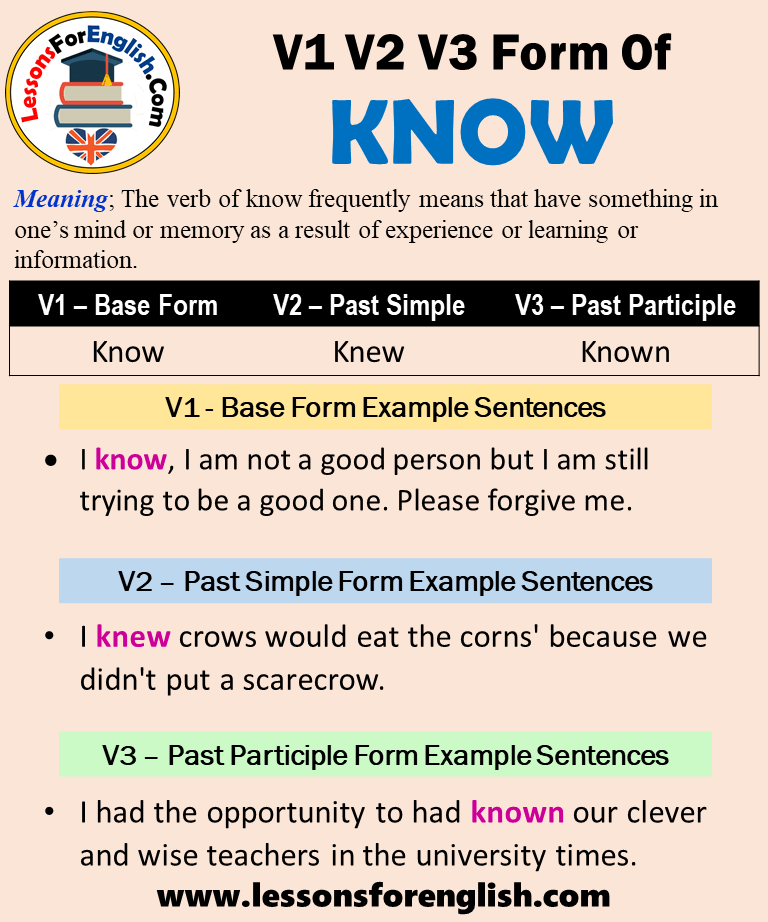
Past Tense Of Know, Past Participle Form of Know, Know Knew Known V1 V2
Let's explore some examples of different contexts and how the choice between "knew" and "known" might change. 1. Past Vs Present Tense. One of the primary factors that can influence the choice between "knew" and "known" is the tense of the sentence. "Knew" is the past tense of "know," while "known" is the past.

Инструменты для анализа сайта конкурентов, их трафика и рекламной стратегии
Dictionary entry overview: What does know mean? • KNOW (noun) The noun KNOW has 1 sense:. 1. the fact of being aware of information that is known to few people Familiarity information: KNOW used as a noun is very rare. • KNOW (verb) The verb KNOW has 11 senses:. 1. be cognizant or aware of a fact or a specific piece of information; possess knowledge or information about
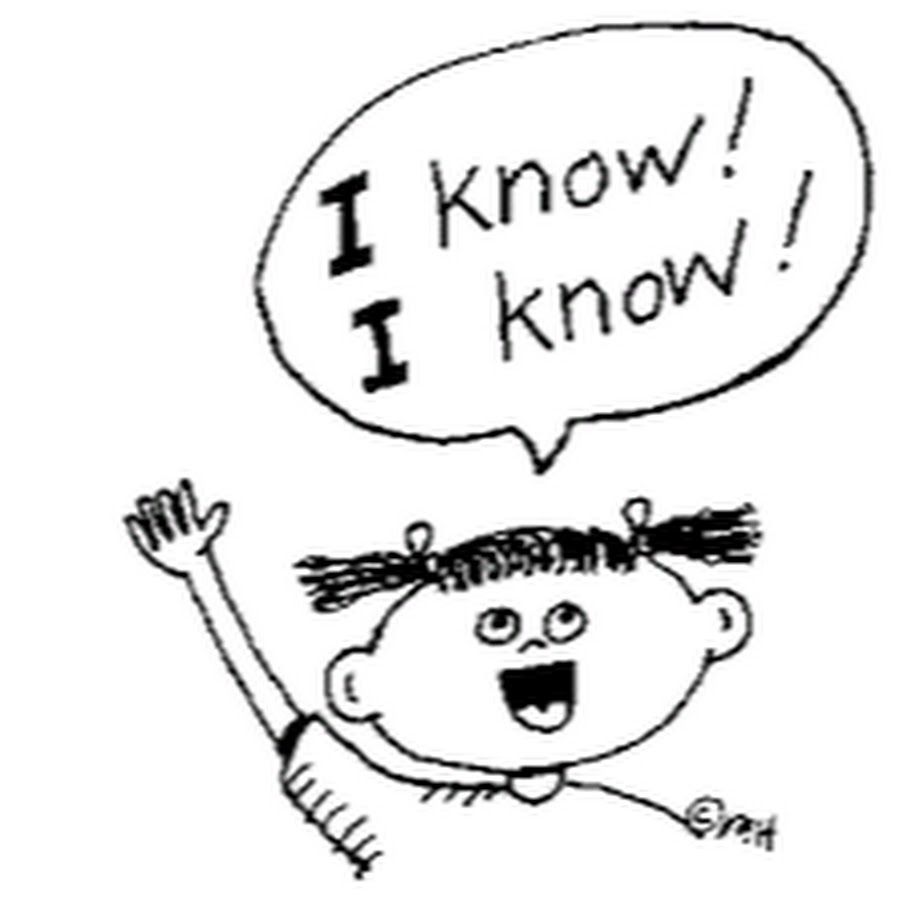
I Know Clipart 7 187 Clipart Station Gambaran
Know means: move from one place to another; travel. V1 V2 V3 Form of Know Synonym Words For KNOW appreciate experience have learn notice perceive realize recognize see apperceive apprehend cognize comprehend differentiate discern discriminate distinguish fathom grasp ken prize undergo be acquainted be cognizant
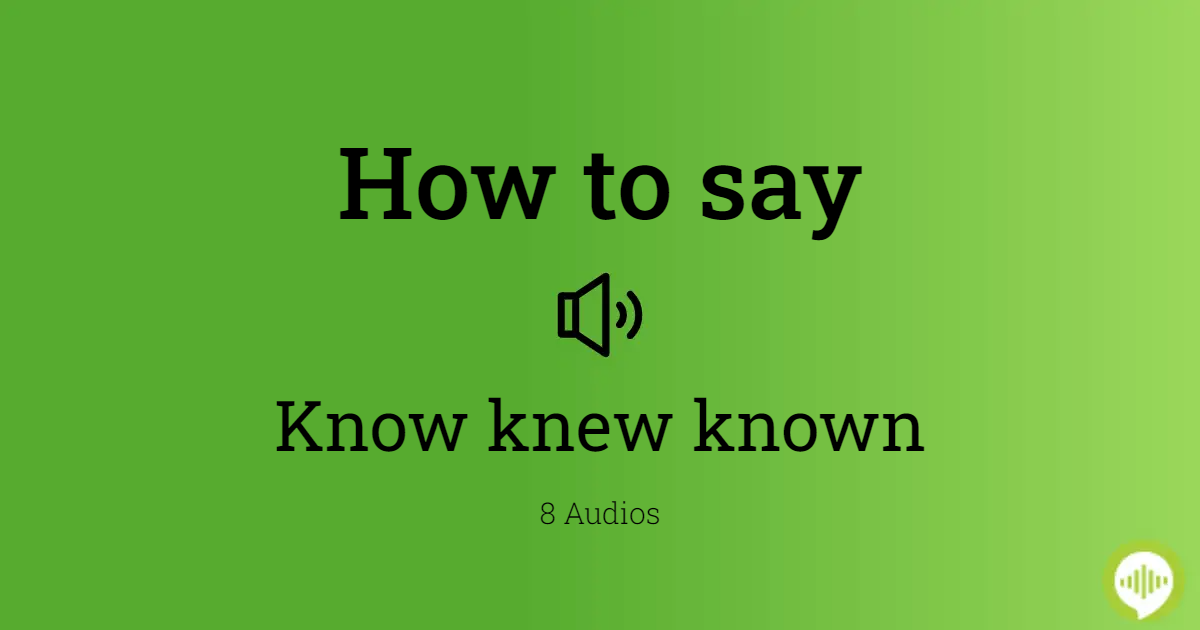
How to pronounce Know knew known
Knew or Known: Which Is Correct? "Knew" is the simple past tense of the verb "to know." We use it when someone has known something in the past. "Known" is the past participle of "to know," which we use alongside auxiliary verbs like "have" to turn into one of the three possible perfect tenses.
.webp)
Know, Knew, Known Which is the Correct the Past Tense and Past
know: [verb] to perceive directly : have direct cognition of. to have understanding of. to recognize the nature of : discern. to recognize as being the same as something previously known. to be acquainted or familiar with. to have experience of.
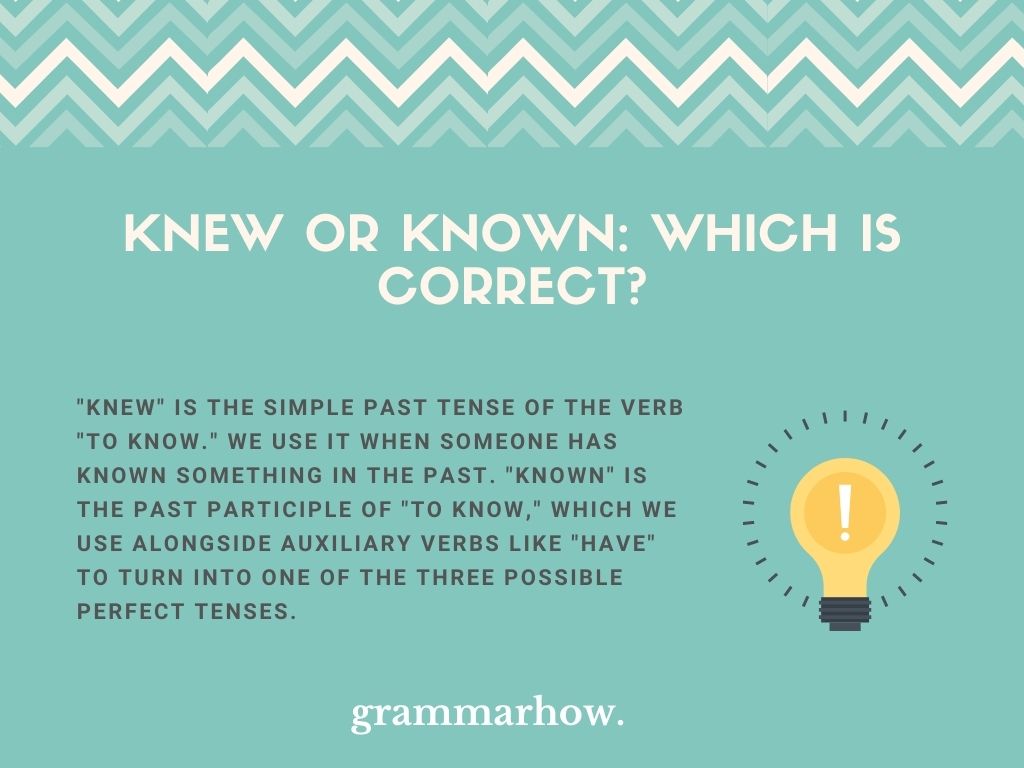
Knew or Known Which Is Correct? (Helpful Examples)
Present. I would know. you would know. he would know. we would know. you would know. they would know.
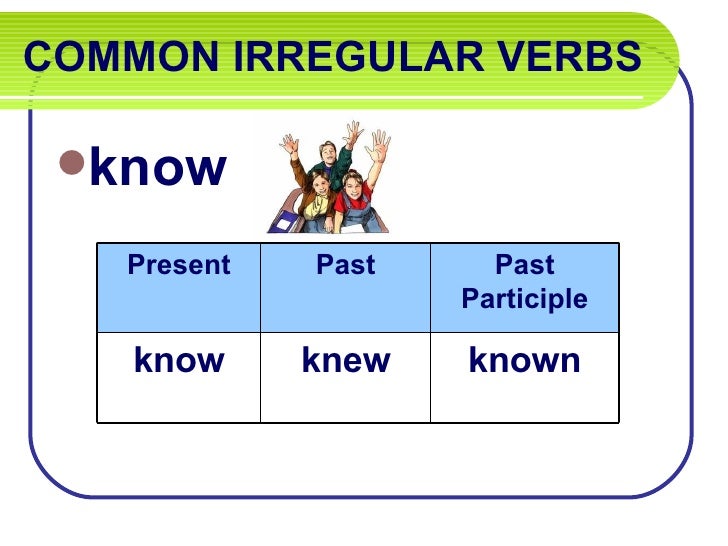
Verbs Irregular 2
Verb: know (knew,known) now. Be cognizant or aware of a fact or a specific piece of information; possess knowledge or information about. "I know that the President lied to the people"; "I want to know who is winning the game !"; "I know it's time"; - cognize, cognise [Brit] Be aware of how to do or perform something.

Know Verb Forms Past Tense, Past Participle & V1V2V3
"Knew" is the simple past tense form of "to know." "Known" is the past participle form of "to know," used with auxiliary verbs. Correct usage of "knew" and "known" indicates precise times or connections to the present. It is important to recognize when to employ these forms correctly to convey the intended meaning.

Spoken English in Telugu Know Verb Forms
To Know Conjugation; To Know Infinitive: to know Gerund: knowing Past participle: known Simple past: knew Irregular forms Auxilliary verb Spelling change Use contractions. Positive Negative. Indicative. Positive Negative. Present. I know I know: you know you know: he/she/it knows he/she/it knows: we know we know:

Know, no, knew, new отличия и значение
Verb; Know Meaning; understand, savvy, wise up, be wise to V1, V2, V3, V4, V5 Form of Know Synonym for Know understand savvy wise up be wise to wise up to recognize get to know identify acknowledge be acquainted with taste experience try die extract distinguish individuate differentiate discriminate happen live through pass through fare notice

Know 3 формы глагола в английском языке Спряжение в прошедшем
Simple Past Tense He/She/It knew or knowed (dialect),. I knew or knowed (dialect),. You/We/They knew or knowed (dialect),. Past Continuous Tense He/She/It was knowing. I was knowing. You/We/They were knowing. Past Perfect Tense He/She/It had known, knowen (archaic), or knowed (dialect). I had known, knowen (archaic), or knowed (dialect).
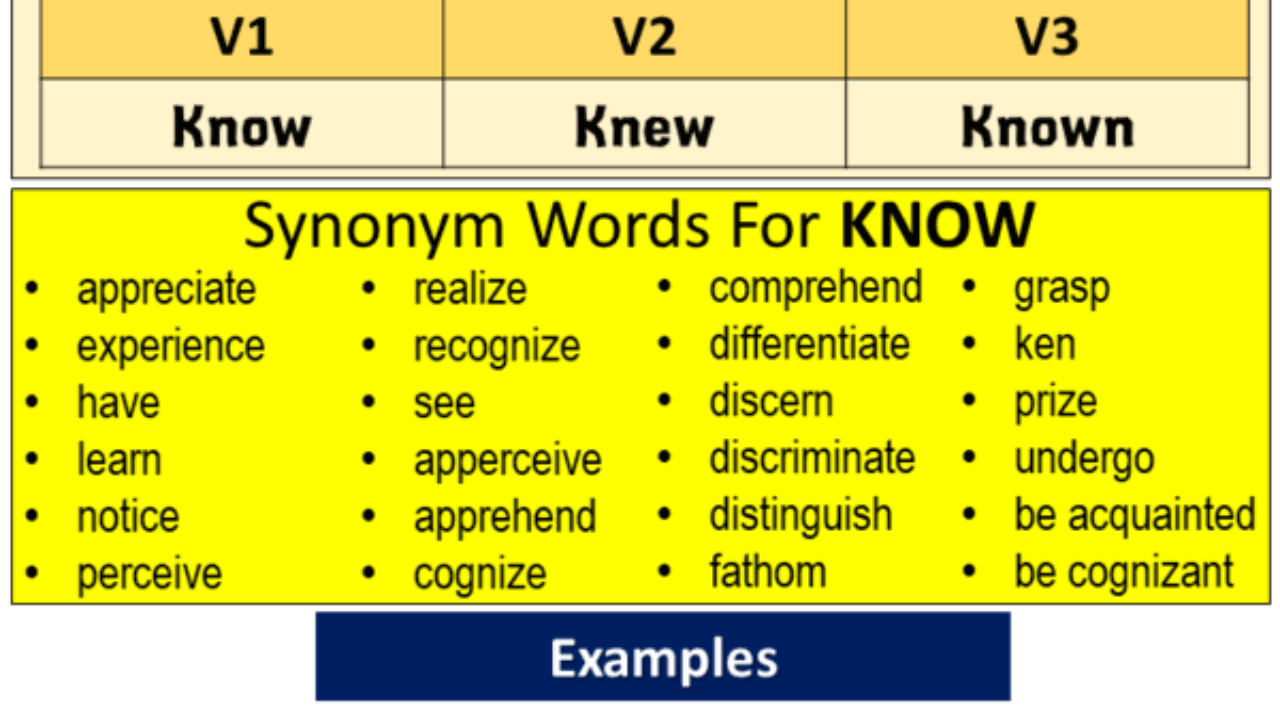
Cognizant verb
The word to know ( present tense ), means "to have information in your mind as a result of experience or because you have learned or been told it". To know is the verb form of the abstract noun, knowledge. We know things that we've learnt, or from our experiences and education.

knowknewknown by incolorwetrust on DeviantArt
Grammar Reference Irregular Verbs List Definition: To Know Irregular verb: To Know Verb conjugation: Know - Knew - Known Meaning of 'To Know' To be acquainted with To have correctly in your memory Conjugation of verb 'Know' Irregular Verbs Following a Similar Pattern Verbs like: Want to learn about the irregular verb 'to Know'?